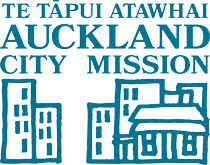
Friday 14 June 2024
Taking Healthcare out to the streets.
I’m Aimee, the Outreach Nurse at the Auckland City Mission – Te Tāpui Atawhai. Every day I have the privilege of taking healthcare out to a community who don’t often get prioritised.
With our Street to Home keyworkers, I check on people who are sleeping rough.
Last winter, we found Ben* sheltering in a local park. We could immediately see that he was desperately unwell. He had an injury on his leg, which wasn’t healing, impacted by his diabetes and close to needing amputation. He wasn’t mobile, couldn’t look after himself, couldn’t even get food.
Fortunately, we took him straight to hospital, where his leg could be treated. The doctors told us that if we hadn’t intervened, he would have died in the park from this injury.
And because of the rapport that we built with Ben, we could help him put a plan in place to manage his diabetes. Our Street to Home team found him supportive housing, where he could better look after himself when he left hospital.
Almost all of the 2000+ patients enrolled at Calder experience homelessness or significant trauma, and have multiple complex, health conditions. Too often they struggle to access the treatment that they urgently require.
Here at Calder, we offer low-cost, trauma-informed medical care and specialise in treating the health impacts of living in poverty and sleeping rough. For many of our patients, we are the only option for getting the medical support they need.
If they couldn’t get treatment from Calder, I know that many of the people we see would become so unwell they’d end up in hospital emergency departments and some would die.
We’re dedicated to providing this essential support but due to the complexity of care required, we can’t cover our costs through the current model of government funding. We are reliant on the generosity of our supporters to make this vital work possible.
Living on the streets takes a huge toll on people’s physical and mental health.
Research shows that sleeping rough reduces life expectancy by over 25 years, and that is absolutely consistent with what we see every day at Calder.
The patients that I work with, on average, present with seven different health problems that need addressing. They might have heart disease, along with cancer or respiratory problems. At the same time, they might be struggling with their mental health or be using drugs or alcohol to cope with the trauma in their lives. So we are dealing with really complex health issues.
I first met George* when he came in for a COVID test. He had real challenges communicating with us. I realised that some of these challenges were caused by a condition that was easily treatable.
We then discovered that his blood pressure was too high to have the operation he needed. As we worked with him to get his blood pressure under control, we found that he also had a disease which, left untreated, could have led to cancer.
Following that one first interaction, we were able to identify and treat all these previously undiagnosed issues. If we hadn’t, he would have just got sicker and sicker without knowing why.
Today George is doing really well. The success of his operation has opened up a whole new world for him. His communication has improved and he’s actively looking for work.
For people trying to survive day to day on the street, in a state of high stress, accessing the medical care they need can seem impossible. Not enough money, no home address, literacy issues, cultural differences and the stigma of homelessness are just some of the barriers faced.
At Calder, anyone can get the health care they need, and everyone is treated with respect and dignity.
We take the time to build relationships with all our patients, understand their stories and earn their trust.
Our outreach care is free and the price of a consultation with a doctor or nurse at Calder is low. We offer a payment plan to spread the cost – and nobody is ever turned away because they can’t pay. So our services are accessible to anyone.
For Eunice, who struggled with addiction for eight years after her marriage ended, the low cost made it possible to get the medical support she needed to withdraw from methamphetamine and sleeping tablets: “At my old doctors, my bill was up to $200 and they wouldn’t see me anymore because I couldn’t pay. I don’t think I would be able to see a doctor if I couldn’t do the payment plan here.”
The non-judgmental relationship we built with Eunice was crucial to her life change. “They supported me, even knowing I was a drug addict. They spoke to me like a person, not treated me like a druggie. They were probably the incentive for helping me get clean.”
It’s been over a year since Eunice stopped using methamphetamines. She’s got her life back on track and most importantly, she has reconnected with her teenage daughter. She is determined never to go back to her old life and is committed to looking after her wellbeing.
It’s not just medical care we can offer our patients to live well. Because Calder is one of the few general practices in our country which is fully integrated with social services, we can connect our patients to all the wraparound support available at the Mission, including occupational therapists, nutritious food and addiction withdrawal services. And of course, the support of a warm, welcoming community
* name changed to protect privacy
